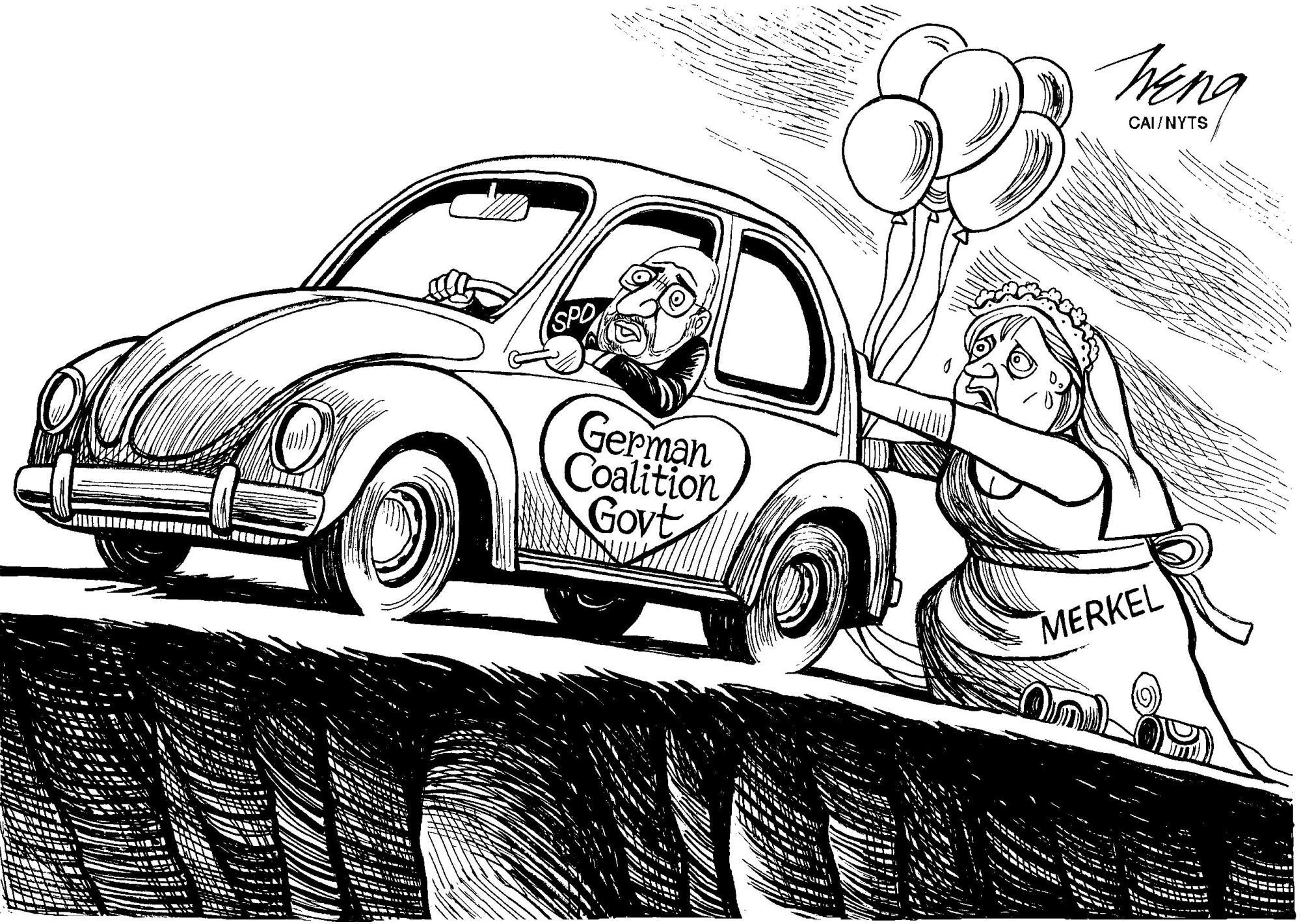At long last, Germany is ready to swear in a new government. After five months of political wrangling, the Social Democrats (SPD) and the Christian Democratic Union — together with the CDU's Bavarian sister party, the Christian Social Union — have formed a government coalition. But in the process of reaching that agreement, something has shifted in German political debate.
Germany has long enjoyed the luxury of pretending to be something it is not: a small country. At the time of the election last year, there was hardly any public debate about the European Union and Germany's role in it. Chancellor Angela Merkel's then-comfortable lead in opinion polls confirmed her instinct that German voters did not want to be bothered with discussions about Europe's future. And, despite being the former president of the European Parliament, then-SPD leader Martin Schulz also focused almost entirely on domestic issues.
But the election of U.S. President Donald Trump, the reform agenda of French President Emmanuel Macron, and, to a lesser extent, the United Kingdom's vote to leave the EU, have focused minds across Germany. If Europe is to meet its many challenges, Germany needs to question some of its long-standing assumptions. It needs a clear European agenda, one that dispenses with small-nation thinking.

















With your current subscription plan you can comment on stories. However, before writing your first comment, please create a display name in the Profile section of your subscriber account page.